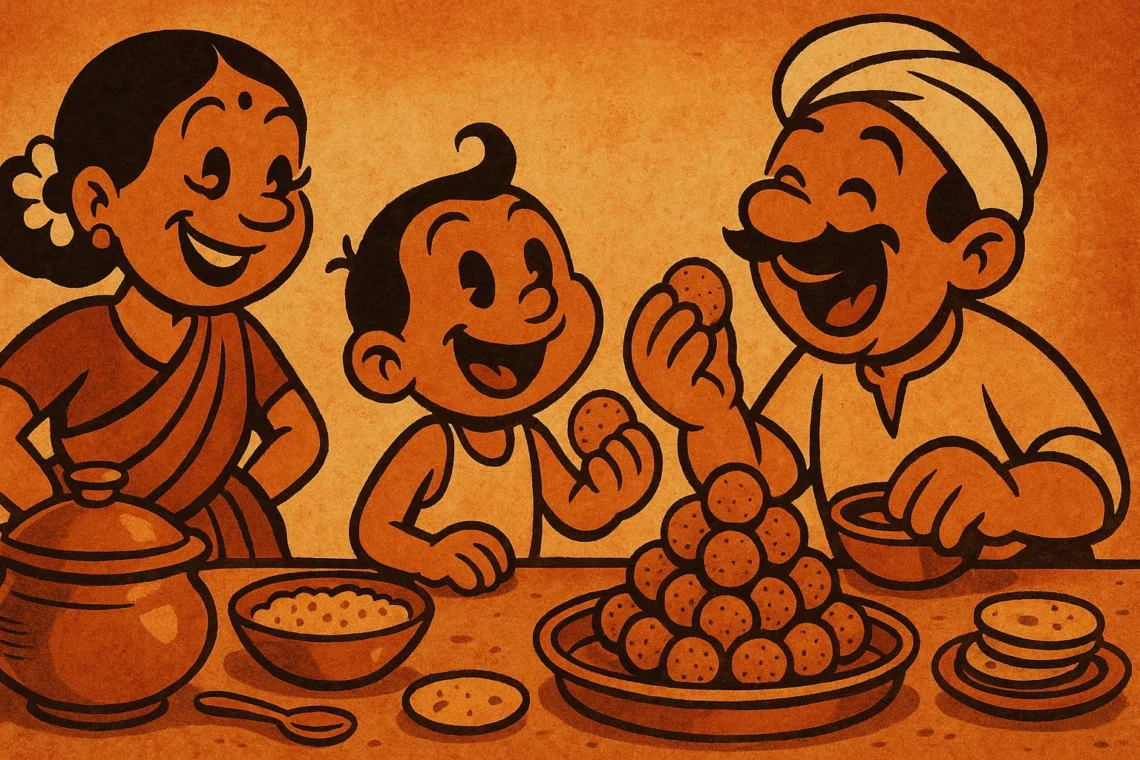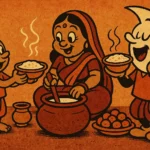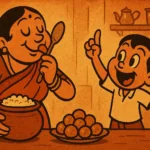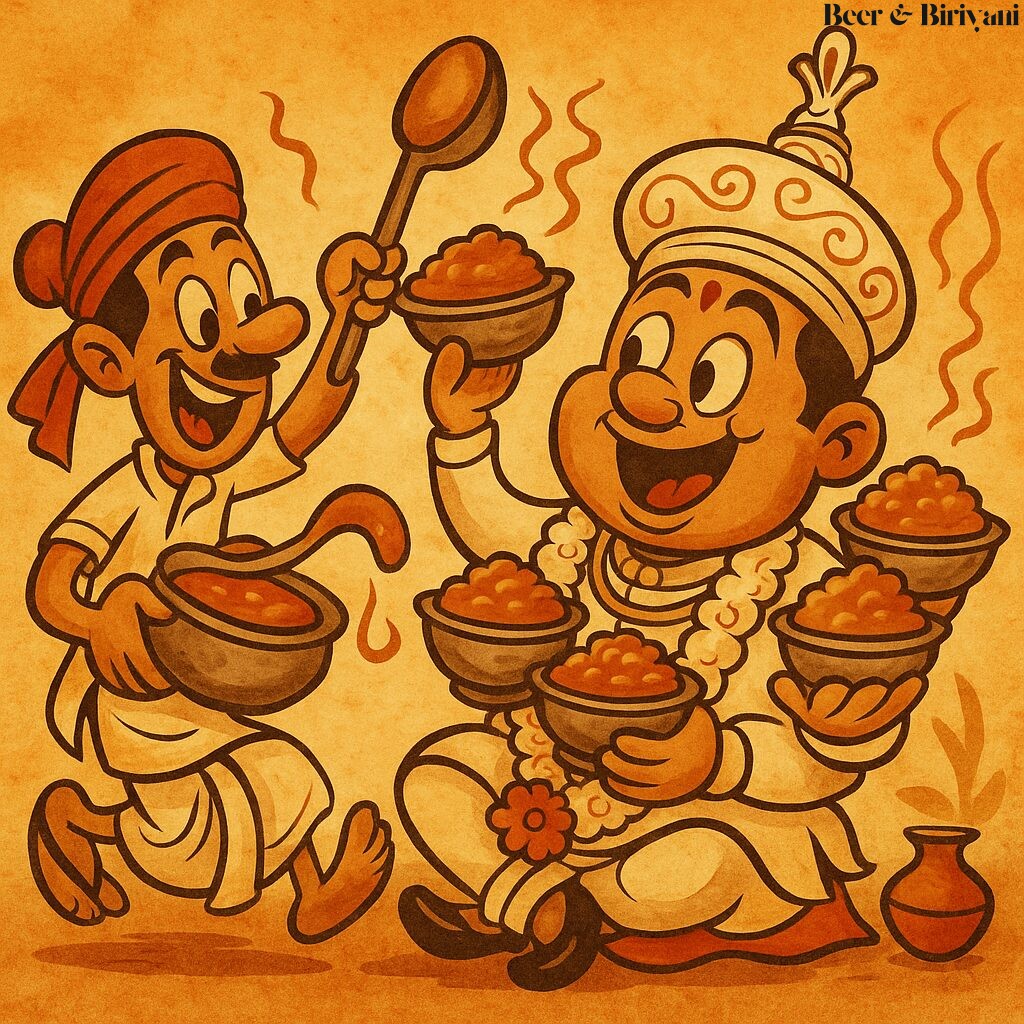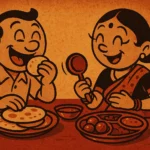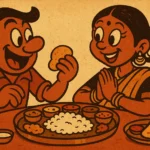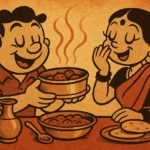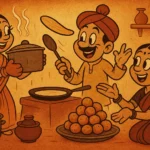In most of the world, dessert comes at the end. A sugary send-off. A reward for finishing your vegetables. A grand finale. But in many Indian homes, sweets often arrive first—quietly, without fanfare, before the meal has even begun. A spoonful of kheer. A corner of halwa. One bite of mithai before the roti hits the plate. And if you ask why, no one really gives you a straight answer. They just say, “Acha hota hai.” It’s good for you. It’s auspicious. It’s tradition. But the real reason? It’s love disguised as logic.
Growing up, I watched my grandmother place a piece of jaggery or a tiny laddoo on my plate before anything else. “Kha lo,” she’d say, not waiting for my protest. I used to think it was strange—shouldn’t sweets be a treat for after? But in her world, sweets weren’t indulgent. They were grounding. Anchoring. The first thing your stomach tasted was meant to be gentle. Familiar. Sweet.
Starting on a Sweet Note
There’s something beautifully intentional about beginning with mithai. In Ayurvedic philosophy, sweet is considered the most nourishing of the six tastes—madhura, the one that builds strength and steadiness. When you start with something sweet, you’re telling the body: you are safe. You are about to be fed. This is not a moment of scarcity. It’s a moment of care.
It also sets the emotional tone. Sweetness at the beginning feels hopeful. It says: this is a good meal. A good moment. A good start. Whether it’s a wedding feast, a temple prasad, or just Sunday lunch at home, the logic is the same—begin with blessing, not conclusion.
Sugar as Sentiment
In many homes, especially in the South, you’re offered a piece of payasam or a bite of banana before the rest of the meal lands on your leaf. Not for appetite, but for affection. Even on regular weekdays, my mom would sometimes give me a small spoon of suji halwa while the sabzi was still cooking. It wasn’t a course. It was a gesture. A nudge. “Eat something.” Not because I was hungry, but because I was loved.
And then there’s the emotional tact of it. Guests arriving after a long journey? Sweet first. New bride entering the house? Sweet first. Child about to leave for an exam? Sweet first. It’s never about the sugar. It’s about setting the moment gently. Wrapping it in kindness. Leading with grace.
Flipping the Script
When I moved abroad, I tried to explain this to friends. At dinner parties, they’d serve ice cream last and wait for compliments. Meanwhile, I’d be craving that first bite of something soft and sweet before the food even arrived. Once, I placed a bowl of shrikhand before the rice. “Wait—are we doing dessert first?” someone asked. And I smiled. “Not dessert,” I said. “Just a sweet beginning.”
Over time, I noticed how it changed things. People softened. Meals stretched longer. Conversation became less hurried. Sweetness, it turns out, makes you linger. And maybe that’s the point—when you start with sweetness, everything that follows feels less like obligation and more like invitation.
Not a Rule, Just a Rhythm
This isn’t about rejecting dessert at the end. Eat your gulab jamun. Have your rasmalai. But don’t be surprised if, at my table, I hand you a bite of peda before the first course. Because for me—and for many of us—sweetness isn’t a climax. It’s context. It’s how we open the door to the meal, to each other, to the moment.
So yes, in our homes, sweets come first. Not because we’re impatient, but because we’re deliberate. We don’t wait to celebrate. We start that way.
Because in an Indian kitchen, the first bite isn’t just a flavor. It’s a blessing.
Born in Mumbai, now stir-frying feelings in Texas. Writes about food, memory, and the messy magic in between — mostly to stay hungry, sometimes just to stay sane.

